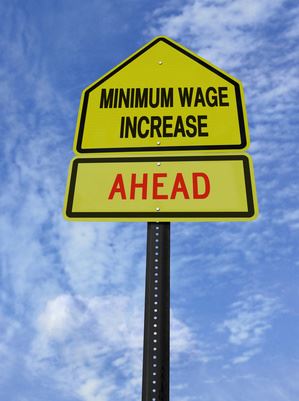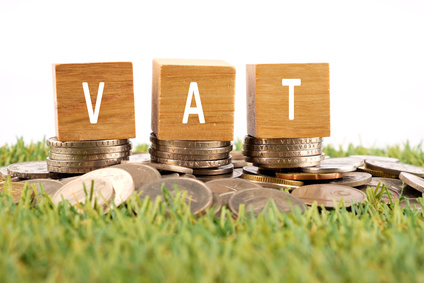April 2019 sees several changes to legislation for those who run a business. Here is a brief round up of the changes which may affect your business.
 Businesses who have employees will have an increases in their costs with the a new National Living Wage rate effective from 6th April and higher pension contributions. Employees aged 25 and over must now be paid £8.21 per hour and for employees enrolled into the auto enrolment pension scheme the employers' contribution will increase to 3% of qualifying earnings.
Businesses who have employees will have an increases in their costs with the a new National Living Wage rate effective from 6th April and higher pension contributions. Employees aged 25 and over must now be paid £8.21 per hour and for employees enrolled into the auto enrolment pension scheme the employers' contribution will increase to 3% of qualifying earnings.
Employees will see some benefit with a higher tax free allowance of £12,500, an increase from £11,800 in 2018-19 but this may make very little difference to their income as they will be contributing 5% of qualifying earnings to their pension.
The start of the new payroll year will see many employees receive a new tax code. Most will be the new standard tax code of 1250L but some employees will receive different ones from HMRC and it is therefore important that you implement the ones provided by HMRC.
The £3,000 employment allowance is still available to employers although there remains some restrictions. The allowance cannot be claimed by more than one connected business i.e. if two or more businesses have the same owner then only one business can claim the allowance. A business which only has one director taking a salary cannot claim the employment allowance but if there is a director plus employees the allowance can be claimed. The employment allowance cannot be claimed by an employer who only employs domestic staff but it can be claimed by an employer who employs carers or support workers.
Making Tax Digital has been on everyone's lips for the past couple of years but only now are many business realising that they need to change the way they are keeping their accounts records. Businesses with taxable turnover over the VAT threshold of £85,000 must submit their VAT returns through their accounts software for their first full VAT quarter (or month) after 1st April.  This means that they must record their accounting transactions from the start of that VAT quarter (or month) on accounts software which can be used to submit their VAT return through the MTD portal. If the business has already been submitting returns through their software they will find they will no longer be able to do this and will have to sign up for Making Tax Digital and set up a new account with a different login and password.
This means that they must record their accounting transactions from the start of that VAT quarter (or month) on accounts software which can be used to submit their VAT return through the MTD portal. If the business has already been submitting returns through their software they will find they will no longer be able to do this and will have to sign up for Making Tax Digital and set up a new account with a different login and password.
There is plenty of information about Making Tax Digital on HMRC's website - just search for Making Tax Digital. There will be information for agents and for businesses as each one has to sign up to MTD differently. The information provided by HMRC is constantly changing as they develop the process so it is worth reviewing it from time to time until you are ready to register for MTD.
VAT registered businesses below the VAT threshold do not have to sign up to MTD - yet - but can do so if they want to. If a business is below the VAT threshold and doesn't sign up to MTD that business doesn't need to use MTD compatible software.
